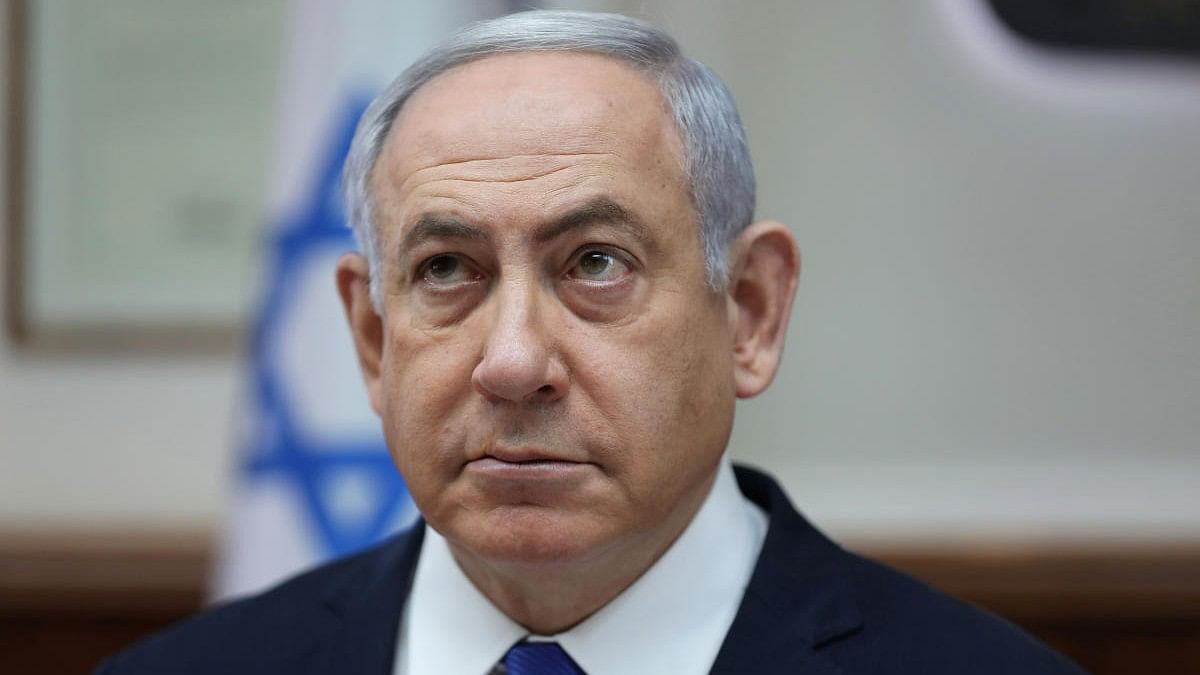
Israeli Prime Minister Benjamin Netanyahu.
Credit: Reuters Photo
Jerusalem: Prime Minister Benjamin Netanyahu of Israel vowed anew Tuesday to launch an invasion into the southern Gaza Strip, even as a renewed push for a cease-fire agreement was showing glimmers of a potential breakthrough.
After seven months of an Israel-Hamas war in Gaza, the United States, Qatar and several other countries have been hoping to broker a cease-fire, and Secretary of State Antony Blinken is visiting the Middle East to press for an agreement.
But with Hamas arguing that any agreement should include an end to the war, and with right-wing politicians in Israel threatening to leave the government coalition if the long-planned incursion into Rafah, a city in the southern Gaza Strip, is delayed, Netanyahu said that Israel reserved the right to keep fighting.
“The idea that we will halt the war before achieving all of its goals is out of the question,” he said in a meeting with the families of hostages being held in Gaza, according to a statement from his office. “We will enter Rafah, and we will eliminate the Hamas battalions there— with or without a deal— in order to achieve the total victory.”
Netanyahu’s comments came a day before he was to meet with Blinken, who, along with other Biden administration officials, has been pressing Israel to avoid a major assault on Rafah in order to minimize civilian casualties. The war has already killed more than 34,000 Palestinians, Gaza health officials say.
At a news briefing Tuesday, John F. Kirby, a White House spokesperson, made clear that the United States remained opposed to an Israeli strike against Hamas in Rafah without a meaningful plan to protect civilians, which American officials say they have not seen.
“As for what is in the public domain coming out of the prime minister’s office, you guys would have to talk to him and his team about that rhetoric and the motivation for it,” Kirby said. “All I can say is we don’t want to see a major ground operation in Rafah. That hasn’t changed.”
Although Israeli officials have repeatedly said that they plan to move into Rafah, which they describe as the last stronghold of Hamas, over the weekend they seemed to make concessions aimed at securing a cease-fire deal.
The Israelis said they were open to holding off on the invasion if it meant freedom for the hostages seized during the Hamas-led attack on Israel on Oct. 7 and indicated that they were prepared to settle for an initial release of fewer hostages than they had been demanding. For weeks they had been insisting on the release of 40 hostages, but in a new offer, they said they would agree to 33.
Earlier in the week, Blinken, calling Israel’s revised offer “extraordinarily generous,” said the onus for agreeing to a deal was now on Hamas. On Tuesday, Kirby said the administration was awaiting a response.
“This is a very good proposal, and Hamas ought to jump on it, and time is of the essence,” he said.
But Netanyahu’s comments about invading Rafah injected new uncertainty into whether there would be a truce. It was not clear whether the threat to invade might be a tactic intended to pressure Hamas or to appease hard-liners in the prime minister’s coalition.
In Rafah, both sides appeared to be bracing for a large military operation.
In anticipation of an Israeli ground offensive, some families there have been moving north into areas of Gaza where fighting had taken place earlier in the war.
Among them was Mohammed Foara and his family, who had to move for the fifth time in seven months. Earlier in the war, their oldest child was killed by an airstrike in Nuseirat, in central Gaza.
“I fear for them more and more,” Foara said of his four surviving children.
Blinken, who is on his seventh trip to the Middle East since the October 7 attack that Israel says killed 1,200 people, discussed the proposed cease-fire deal at meetings in Saudi Arabia on Monday. On Tuesday, he visited Jordan, where he met with King Abdullah II to discuss the proposal, as well as Jordan’s humanitarian aid contributions to Gaza.
The secretary of state visited a warehouse where workers were loading trucks for the first attempt to send medical and food aid overland from Jordan to the Israeli-Gaza border crossing of Erez. He praised the start of the new aid corridor and said that a pier being built by the US military to bring aid by sea to coastal Gaza would be operational in about one week.
Blinken and his aides have been trying to work on a range of issues in the region, including continuing the flow of US arms to Israel, the humanitarian crisis in Gaza and a political solution to the decades-long Israeli-Palestinian conflict.
In talks with Jordanian officials, Blinken had also been expected to address issues around the leadership of the Palestinian Authority, which runs parts of the Israeli-occupied West Bank. Blinken later left for Tel Aviv, Israel.
The Biden administration has raised the prospect of the authority, which is considered by many Palestinians to be authoritarian and corrupt, helping to govern a postwar Gaza, an idea that Israel’s government opposes. Jordanian officials have close ties with Mahmoud Abbas, the head of the authority, and other prominent Palestinians in the organization.
Officials from Hamas and the political faction that controls the Palestinian Authority, Fatah, with which Hamas has long competed for power in Gaza and the West Bank, met in Beijing recently for what Lin Jian, a spokesperson for China’s foreign ministry, described Tuesday as “in-depth and candid talks on promoting intra-Palestinian reconciliation.”
Lin said the two sides had agreed to continue a dialogue. Representatives of Fatah and Hamas also met in February in Russia without any apparent progress toward a unified government.